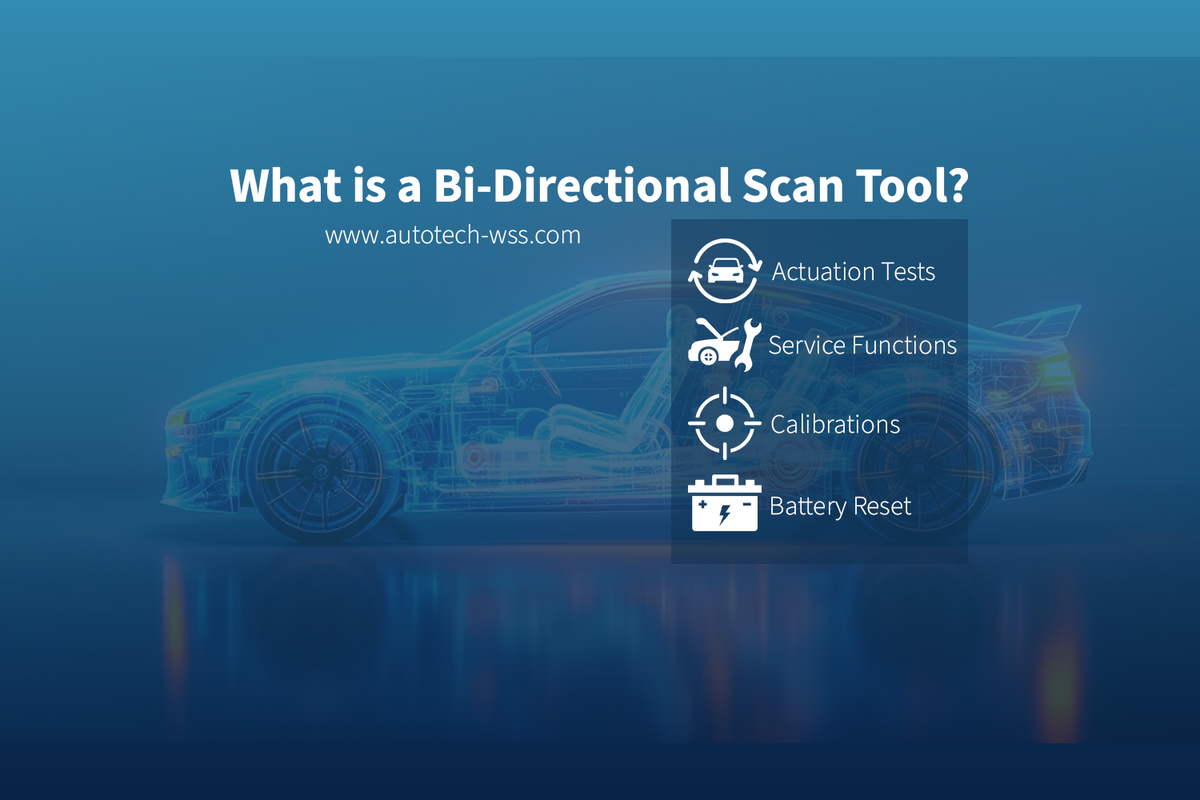
What is a Bi-Directional Scan Tool and is it Worth the Investment?
|
|
Time to read 4 min
|
|
Time to read 4 min
Introduction: Bi-Directional Scan Tools
How often have you heard the phrase bi-directional controls when searching for an OBD2 scan tool ? Quite a lot, right? All this technical jargon can be pretty confusing—especially if it’s your first time looking to purchase a vehicle scan tool.
Fortunately, we’ve made a list clarifying common terms around bidirectional control so you can get the most out of your investment and choose the right tool for your workshop or garage.
Table of Content
Bi-directional control refers to a scan tool’s ability to not only receive data from a vehicle’s ECU (Electronic Control Unit) but also send commands back to it.
This two-way communication is what sets a bi-directional scanner apart from a regular OBD2 scan tool.
With traditional scanners, you can only read data. But with bi-directional controls , you can perform what’s called active testing or actuation testing —triggering components like relays, fans, and pumps to see how they respond.
A bi-directional scan tool (also known as a bidirectional OBD2 scanner) is used for component testing and actuation tests, or active tests on various vehicle systems.
For example, a technician can:
Bidirectional controls allow technicians to confirm the operation of various components without having physical access to them. This capability leads to faster and more accurate diagnostics.
Best-Selling Bi-Directional Scan Tools
Bidirectional scanners eliminate the need to waste time removing accessories to test components, as you can simply test their operation from the scan tool.
Whether you call it actuation testing, active testing, or function testing, this feature gives professionals and advanced DIYers the edge.
If you’re a professional technician or a serious enthusiast, the answer is a resounding yes.
The power to both read data and run commands directly from your scan tool is a game-changer.
If you’re just starting out and only need to check engine codes or perform basic diagnostics, a standard OBD2 scan tool might be sufficient—especially if you're budget-conscious. The price difference can be significant, so it's worth considering your current needs and long-term goals.
With that being said, if you're on a budget, you can explore options like the Topdon TopScan PRO - A budget-friendly bi-directional scan tool that can connect to your mobile phone!
Still asking, “Is it worth investing in a bidirectional scanner?” If you plan to grow your capabilities or run a workshop, it’s a solid investment in speed, accuracy, and customer satisfaction.
Bi-Directional Scan Tools For Professionals
When choosing a bi-directional scanner, consider:
Vehicle coverage: Does it support the makes/models you service?
Ease of use: A good interface saves time and frustration, particularly for beginners.
Software updates: Look for regular updates to stay ahead of the curve.
After-sales Support: Make sure there's good customer support behind your tool.
At AutoTech Workshop Solutions, we stock a wide range of scan tools from mid-range to professional-grade to suit every technician's needs, with expert after-sales support and a 30-day money back guarantee!
Need help choosing the right bi-directional scan tool? Contact Us!
Conclusion
Understanding the value of bi-directional scan tools is essential when choosing the right diagnostic equipment for your workshop. Whether you're a seasoned technician or just starting out, knowing the difference between a basic OBD2 scanner and a bi-directional scanner can save you time, improve accuracy, and enhance your diagnostic capabilities. Investing in the right tool ensures you’re equipped to handle modern vehicle systems efficiently and safely.
Bi-directional scan tools allow both sending commands and receiving data from the vehicle's ECU, enabling advanced diagnostic functions.
These tools support active testing and component tests, streamlining fault detection without disassembling components.
While more costly than standard OBD2 tools, bi-directional scan tools are ideal for professional workshops and advanced diagnostics.
Best Bi-Directional Scan Tools to Enhance Diagnostic Performance!
A bi-directional scan tool is used to both read data from and send commands to a vehicle’s ECU. This allows technicians to perform active tests, control components, and run system diagnostics more effectively.
A standard OBD2 scanner can only retrieve data from the vehicle, such as fault codes or live sensor readings. A bi-directional scanner, on the other hand, can send commands to activate components like fans, fuel pumps, and relays—offering far more advanced diagnostic capabilities.
Yes—if your workshop performs in-depth diagnostics or advanced fault finding, a bi-directional scanner can save time and improve accuracy. For basic code reading, a standard scanner may suffice, but the investment in a bi-directional tool pays off with enhanced functionality.
Consider factors like vehicle coverage, ease of use, software update support, and your specific diagnostic needs. Mid-range tools are great for general workshops, while high-end models suit professional environments with broader requirements.

